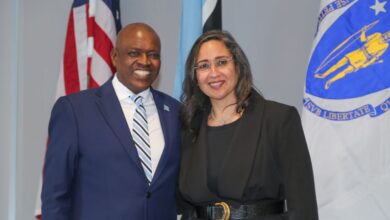The Entrepreneur’s Antifragile Arsenal | HackerNoon

On a recent podcast episode with the incredible Lori Harder, we dove deep into a topic that’s rarely discussed in the entrepreneurial world: the power of building an “antifragile arsenal.”
It’s a concept that goes far beyond the usual “hustle and grind” mentality, and it’s something I believe every entrepreneur needs to understand if they want to not only survive but thrive in today’s unpredictable business landscape.
Let’s be real for a second. Most entrepreneurial advice out there is a regurgitation of the same old tired tropes: “hustle harder,” “fail fast,” “never give up.”
While there’s some truth to these mantras, they barely scratch the surface of what it takes to not only survive but thrive in the unpredictable world of business.
Today, I want to introduce you to a concept that’s far more potent than the usual platitudes – a concept that can transform your entire approach to risk, failure, and ultimately, success.
It’s the concept of the Antifragile Arsenal.
What is Antifragility?
Antifragility, as coined by Nassim Nicholas Taleb, is the ability not just to withstand shocks and stressors but to actually gain from them.
It’s about building systems, strategies, and mindsets that become stronger in the face of adversity.
Now, you might be thinking, “Okay, Scott, this sounds great, but what does it have to do with me and my business?” Everything.
Your Network: The Ultimate Antifragile Asset
In my experience, the most potent weapon in your antifragile arsenal is your network.
And no, I’m not talking about your LinkedIn connections or your Instagram followers. I’m talking about the people who truly have your back – the ones who will challenge you, support you, and push you to become the best version of yourself.
Your network is the ultimate antifragile asset because it provides you with:
- Resilience: When the inevitable setbacks hit (and they will), your network acts as a shock absorber, softening the blow and helping you bounce back faster.
- Optionality: The broader and more diverse your network, the wider your range of options when facing challenges or pursuing new opportunities. Your network is a source of diverse perspectives, knowledge, and connections that can open doors you never knew existed.
- Serendipity: Some of the most transformative connections and opportunities in my life have come from unexpected interactions within my network. A chance conversation at a dinner party, a referral from a friend, a random LinkedIn message – these seemingly insignificant events can lead to game-changing outcomes.
The Safety Net Paradox
Here’s where things get interesting.
Conventional wisdom tells us that the safest path is to minimize risk.
Play it safe, don’t rock the boat, and stick to what you know.
But what if I told you that this approach is fundamentally flawed?
What if I told you that by avoiding risk, you’re actually making yourself more vulnerable?
Think about it. If you never push your limits, you never discover your true potential.
If you never take risks, you never learn from your failures. If you never step outside your comfort zone, you never grow.
This is where the safety net paradox comes in.
By building a strong network of support, you create a safety net that paradoxically allows you to take bigger risks, because you know that
you have people to catch you if you fall.
The Art of Strategic Vulnerability
Now, let’s be clear.
Building a truly antifragile network isn’t just about collecting business cards or attending networking events.
It’s about cultivating genuine relationships based on mutual respect, trust, and vulnerability.
This is where most entrepreneurs stumble.
We’re so used to projecting an image of strength and invincibility that we forget how to be vulnerable.
But here’s the secret: vulnerability is the key to building deep, meaningful connections.
When you’re willing to share your fears, your doubts, and your struggles, you create space for others to do the same.
This is how trust is built. This is how bonds are formed.
Think about the people in your life whom you trust the most.
Are they the ones who always pretend to have it all figured out? Or are they the ones who are willing to admit their weaknesses and ask for help?
By embracing vulnerability, you not only strengthen your existing relationships but also open yourself up to new connections and opportunities.
You never know who might be able to offer the support, guidance, or resources you need to overcome a challenge or achieve a breakthrough.
Building Your Antifragile Network
So, how do you actually go about building an antifragile network?
Here are a few tips:
- Be intentional: Don’t just wait for connections to happen organically. Actively seek out people who inspire you, challenge you, and share your values.
- Invest in relationships: Relationships, like any other asset, require investment. Make time for the people who matter to you. Offer your support, guidance, and expertise when they need it.
- Embrace diversity: Don’t just surround yourself with people who think and act like you. Seek out diverse perspectives and experiences. This will expand your knowledge base and expose you to new ideas and opportunities.
- Give more than you take: The most successful networks are built on reciprocity. Focus on adding value to the lives of others, and the rewards will come back to you tenfold.
Remember, your network is more than just a collection of contacts. It’s a living, breathing ecosystem that can either support your growth or hinder it.
By building an antifragile network, you’re not just protecting yourself from risk – you’re creating a powerful engine for success.
Cultivating Your Inner Antifragility
Now, while your external network is a critical component of your antifragile arsenal, it’s not the whole story.
True antifragility also requires cultivating a certain mindset – a way of thinking that embraces challenges, learns from failures, and thrives in uncertainty.
Here are a few principles to guide you on your journey to inner antifragility:
- Embrace Failure as a Teacher: Instead of fearing failure, view it as a valuable learning experience. Every setback, every mistake, every rejection is an opportunity to gain new insights, refine your strategies, and grow stronger. As Thomas Edison famously said, “I have not failed. I’ve just found 10,000 ways that won’t work.”
- Practice Stoic Optimism: The Stoic philosophers taught us to focus on what we can control (our thoughts, our actions, our responses) and to accept what we cannot control (external events, the actions of others). This doesn’t mean being passive or resigned to fate. It means adopting a pragmatic optimism that allows you to focus your energy on the things that truly matter.
- Develop a Growth Mindset: Stanford psychologist Carol Dweck’s research on mindset has shown that people who believe their abilities can be developed through dedication and hard work (a growth mindset) are more likely to embrace challenges, persist in the face of setbacks, and ultimately achieve greater success than those who believe their abilities are fixed (a fixed mindset).
- Cultivate Mental Toughness: Mental toughness is the ability to stay focused, motivated, and resilient in the face of adversity. It’s about pushing through pain, overcoming obstacles, and refusing to give up on your goals. Like a muscle, mental toughness can be strengthened through practice and training.
- Seek Out Discomfort: Growth happens outside your comfort zone. Challenge yourself to try new things, take on difficult projects, and face your fears. This is how you expand your capabilities and build resilience.
The Antifragile Entrepreneur
When you combine a strong external network with an antifragile mindset, you become an unstoppable force. You’re not just surviving in the entrepreneurial arena – you’re thriving.
You’re the entrepreneur who sees opportunity in chaos, who learns from failure, who embraces uncertainty, and who emerges from every challenge stronger and more resilient than before.
You’re the antifragile entrepreneur.
From Theory to Practice: Building Your Antifragile Arsenal
Alright, let’s get tactical.
We’ve covered the theory of antifragility and the importance of cultivating both external and internal resilience.
Now, let’s dive into some actionable steps you can take to start building your own antifragile arsenal:
- Audit Your Network: Take a hard look at your existing network. Who truly supports you and challenges you to grow? Who drains your energy and holds you back? Make a conscious effort to surround yourself with people who lift you up and empower you to be your best.
- Expand Your Circle: Don’t limit yourself to your existing social circles. Actively seek out new connections who can offer diverse perspectives, skills, and experiences. Attend industry events, join online communities, and reach out to people you admire. Remember, the most valuable connections often come from unexpected places.
- Invest in Relationships: Relationships require nurturing. Make time for the people who matter to you. Schedule regular coffee dates, phone calls, or Zoom meetings. Offer your support, guidance, and expertise when they need it. Celebrate their successes and offer a shoulder to lean on during tough times.
- Embrace Vulnerability: Don’t be afraid to show your true self. Share your struggles, your fears, and your doubts. Ask for help when you need it. By being vulnerable, you create space for others to do the same, which deepens trust and strengthens your bonds.
- Develop a Failure Ritual: Instead of dreading failure, create a ritual for processing it. When you experience a setback, take some time to reflect on what happened, what you learned, and how you can move forward. Talk to your mentors, your friends, or your therapist. Journal your thoughts and feelings. By reframing failure as a learning opportunity, you take away its power and turn it into a stepping stone to success.
- Practice Gratitude: Gratitude is a powerful antidote to negativity and self-doubt. Take a few minutes each day to reflect on the things you’re grateful for. This could be your health, your family, your friends, your business, or even the challenges you’re facing (yes, even challenges can be opportunities for growth). Gratitude shifts your focus from what you lack to what you have, which cultivates a more positive and resilient mindset.
- Challenge Your Assumptions: Don’t get stuck in a rut. Question your beliefs, your habits, and your routines. Seek out new information and perspectives. Experiment with different approaches. By challenging your assumptions, you open yourself up to new possibilities and create space for innovation and growth.
The Journey of a Lifetime
Building an antifragile arsenal is not a one-time event.
It’s an ongoing process that requires continuous learning, adaptation, and growth.
But it’s also one of the most rewarding journeys you can undertake as an entrepreneur.
By embracing antifragility, you’re not just building a business – you’re building a life that’s resilient, fulfilling, and unstoppable.
So, what are you waiting for?
Start building your antifragile arsenal today, and watch your business – and your life – transform.
If you want to listen to the full podcast, listen on successstorypodcast.com or on YouTube.



